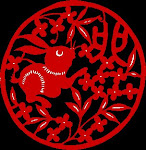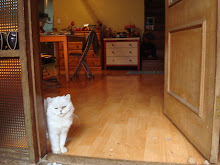Check out their Facebook page.
Monday, October 21, 2013
Thursday, October 17, 2013
17th. October - International Day for the Eradication of Poverty
Theme for 2013:
Working together towards a world without discrimination: Building on the experience and knowledge of people in extreme poverty
The International Day for the Eradication of Poverty has been
observed every year since 1993, when the United Nations General
Assembly, by resolution 47/196,
designated this day to promote awareness of the need to eradicate
poverty and destitution in all countries. Fighting poverty remains at
the core of the Millennium Development Goals (MDGs) and the post-2015 development agenda.Source
Saturday, October 12, 2013
Malala with John Stewart
On the Daily Show Malala had some good laughs with John Stewart ..watch the entire show here (part 1),
Part 2
Part 3
Part 2
Part 3
Wednesday, October 9, 2013
Today is Hangeul Day (한글날)
The Korean Alphabet Day, known as Hangeul Day in South Korea, and Chosŏn'gŭl Day in North Korea, is a national Korean commemorative day marking the invention and the proclamation of the Korean alphabet (한글; 조선글), the native alphabet of the Korean language, by King Sejong the Great. It is observed on October 9 in South Korea and on January 15 in North Korea.
In South Korea, the holiday is also known as Hangeul Proclamation Day.
Labels:
Buzz Korea,
Hanguel Day
Wednesday, October 2, 2013
Reza Aslan on Faith Discourse
Reza Aslan, M.T.S. ’99, whose book “Zealot: The Life and Times of Jesus of Nazareth” soared on the best-seller lists after an infamous Fox News interview last summer, spoke at Harvard Divinity School on Thursday, saying that while he is a Muslim, he also is “a follower of Jesus” whose “life is deeply influenced by Jesus.”
Aslan discussed his portrayal of Jesus as a historical figure and revolutionary insurrectionist against Roman authority rather than as a sacred figure. He also addressed the perils of discussing religion from a scholarly standpoint, his personal faith, and the challenges faced by a scholar who writes for a popular audience.
Aslan’s focus in “Zealot” on the secular Jesus has troubled some people of faith. His bold assertions, narrative endnotes, and determination to reach a lay audience have called forth objections from some in academia. But in front of a standing-room-only crowd, Aslan focused on his experience of trying to explain a religious matter in ways non-academics understand, and urged his listeners to learn how to bring tough religious questions before the public successfully.
As expected, Aslan was asked about his July 27 Fox News interview. In the exchange, which afterward went viral on the Internet, host Lauren Green repeatedly asked, “Why would a Muslim write a book about the founder of Christianity?” Aslan repeatedly defended his academic credentials and his treatment of the subject. The interview brought sharp criticism of Green’s journalistic approach, focusing on Aslan’s professed faith instead of the merits of his scholarly work.
“Look, I know what Fox News is about,” Alsan said to those gathered in the Sperry Room. “Honestly, I was more confused than anything else … The interview was over, and I thought ‘that was weird,’ and I just forgot about it until it became this phenomenon that very quickly stopped being about me, and … became about very important discussions about media and journalistic bias, religion and society, the role of academia in public life and in popular discourse.
“These are conversations we [in theology] have amongst each other all the time, and that nobody else listens to,” he added, as the room erupted in rueful laughter. “It was exhilarating to me.
“The problem with discussing religion is that everyone thinks they are an expert … If you read the Bible, you’re an expert on religion. When the news media have a conversation about the climate, they bring on a climate scientist. But when they want to talk about religion, they bring on some activist or religious leader, not an expert on religion.”
As murmurs of assent rose, Aslan emphasized: “We have to change that. The responsibility rests on us.
“I take faith seriously,” he said. “What I am talking about is very deeply a part of someone’s identity, and they can easily feel as if they are under attack … For us [in academia], it makes sense that we separate our faith from our academic research. But until we figure out how to communicate better with the outside world — and to encourage it among ourselves — then [such an interview] is what’s in store for all of us.”
Aslan blamed some of the controversy on those in his field. Chastising the academy for “punishing” popular writing, he recalled how, as a young scholar, his determination to obtain a master’s in writing set back his academic career. “This is the ethos of academia: Your wanting to be a better writer makes you a weaker candidate.” But he also sees change in the works: “I meet younger scholars who are more engaged in popular media and popular discourse, who are not afraid to break free of the ivy walls.”
He urged students to push back against the practice of writing work impenetrable to anyone outside of the scholarly world. “Simplify, simplify,” he suggested. Practice scholarly methods, but remember: “Your grandmother doesn’t care about your methodology and research. She just wants to get to your conclusions.”
Source
Malala at Harvard

“We are here to find a solution and it’s simple: education, education, education,” Yousafzai, now 16, told the audience as she made a plea for peace, education, and equality in her country and around the world.
“A war can never be ended by a war,” Yousafzai said. “You can only fight wars with education.
“Instead of sending guns, send pens,” she said. “Instead of sending tanks, send books. Instead of sending soldiers, send teachers.”
Yousafzai was in Cambridge to receive the 2013 Peter J. Gomes Humanitarian Award from the Harvard Foundation, which each year honors an individual whose work promotes equality, racial harmony, and peace. Previous recipients have included Elie Wiesel, Desmond Tutu, and Kofi Annan.
“This impressive young woman has touched many throughout the world,” S. Allen Counter, director of the Harvard Foundation and Harvard Medical School (HMS) clinical professor of neurology at Massachusetts General Hospital, said as he presented the award. He called Yousafzai “a refreshing new voice on the world stage.”
The benefits of education for girls in developing nations has been underscored by a World Bank study that showed improvements to economic productivity and decreases in child mortality rates when girls are allowed to go to school, said Paula Johnson, HMS professor of medicine and executive director of the Connors Center for Women’s Health and Gender Biology at Brigham and Women’s Hospital, who also spoke at the award ceremony.
“Education and health are totally intertwined,” Johnson said. “Malala, our work at Harvard is inspired by you.”
Malala
Yousafzai, who was joined by Harvard President Drew Faust in front of
Massachusetts Hall, addressed a group gathered in Harvard Yard prior to
attending the awards ceremony at Sanders Theatre. Stephanie
Mitchell/Harvard Staff Photographer
“We educate women because it is smart. We educate women because it changes the world,” Faust said.
Read more at the Harvard Gazette here.
Subscribe to:
Posts (Atom)
























 sarahinsouthkorea
sarahinsouthkorea
